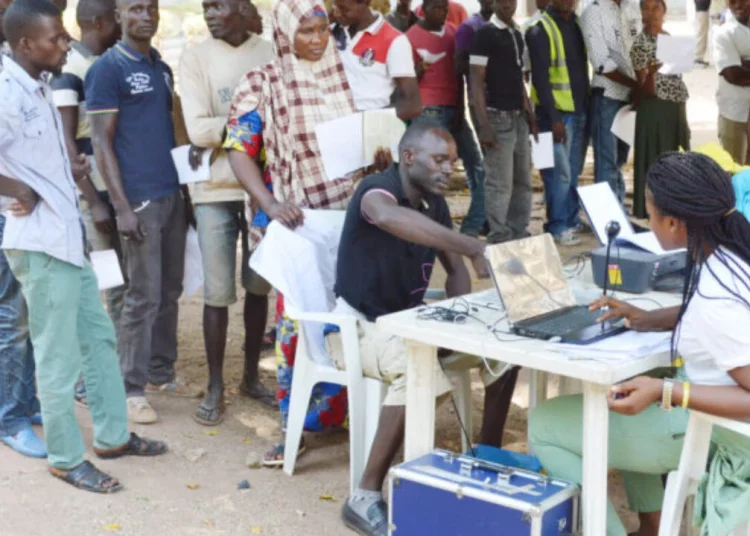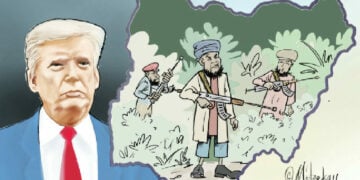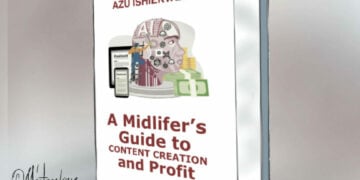One of the challenges of democracy around the world is how to ensure active participation of the general public in the electoral process, especially in the voting process.
Nigeria has had the challenge of voter apathy in recent years. Many observers have attributed this over apathy to loss of confidence in the political process. Over the years
Nigeria’s elections have been characterized by less than salutary occurrences, which have tended to erode confidence, so much so that many refuse to participate as a sort of protest! This accounts for voter apathy in Nigeria and the unwillingness of the citizenry to participate in INEC voter registration. Even when people do register it is mostly for the purpose of using the voter’s card as a means of identification and not necessarily because they want to vote.
All that seems to be changing. For whatever reason, this time around and ahead of the 2023 general election, the country is witnessing unprecedented surge of Nigerians to register to vote. For the first time in the history of our country the level of mobilization has reached fever pitch to the extent that markets and shops are often closed to enable traders and buyers alike to register.
As political parties conclude their presidential primaries ahead of the 2023 general election, efforts by Nigerians to obtain their Permanent Voter Cards (PVCs) has reached a fever pitch. From Lagos to Ogun, Oyo, Enugu and all other states of the federation, including the Federal Capital Territory (FCT), Abuja, officials of the Independent National Electoral Commission (INEC) are battling to cope with the number of people who turn out daily to either collect their PVCs or be registered by the Commission.
It is believed in some quarters that the sudden upsurge in the number of people seeking to be registered, as well as those who want to collect their PVCs to enable them participate in the 2023 elections, was the result of the emergence of former Vice President Atiku Abubakar as presidential candidate of PDP, Bola Ahmed Tinubu as flag bearer of the ruling All Progressives Congress (APC) and Mr. Peter Obi as the candidate of Labour Party (LP).
This has however, brought to the fore the Nigerian tendency for fire brigade approach in most matters. Many would remember the sudden rush by Nigerians to register their sims only when the deadline was in sight. That is exactly what we are witnessing with the latest surge in voter registration following INEC’s announcement that it would close the window of registration by the end of this month. This is how
INEC’s Director of Voter Education and Publicity, Victor Aluko explained this and also posed some questions to these Nigerians who had waited this long to register. He said: “It is also good to ask Nigerians what they have been doing in the past one year since we started this programme. Why didn’t they push before now? Some days, we don’t see anybody in our centres and now they are complaining as if they didn’t know that the registration was on before.”
However, INEC must do everything possible to ensure that all Nigerians who have reached voting age and are desirous of registering to vote are registered even if it means extending the June deadline. The good news is that INEC has also recognized the need to deploy more men and materials to speed up the registration process. Recently, INEC’s
Chairman of Information and Voter Education Committee, Festus Okoye, disclosed via a statement that the Commission has deployed additional 209 registration machines to the five Southeastern states as well as Lagos and Kano states. He noted that the Commission was aware of the challenges faced by citizens across country, hence the deployment, adding that in some states, the sudden turnout of prospective registrants was overwhelming. “Consequently, the Commission convened an urgent meeting with all the Resident Electoral Commissioners (RECs) on Thursday, June 9, 2022 to review the situation so that eligible Nigerians who wish to register are able to do so. The necessity to urgently deploy more voter enrolment machines to ease the congestion at the registration centres was identified as a priority.
“In response, the commission has immediately released additional 209 machines deployed mainly to the five South Eastern States, Lagos and Kano where the surge is high.”
INEC has responded appropriately, but it can still do more if for any reason there are still millions of unregistered eligible Nigerians by the expiration of its deadline. It has to consider extension of the registration exercise.
Cash and Carry Politics!
A burning issue that needs to be addressed, and urgently too, is the monetization of the electoral process. Since the cost of expression of interest and nomination forms are beyond the reach of the average Nigerians, it means that a good number of Nigerians who may have the solutions to the country’s myriad of problems are shut out!
Democracy envisages participation of the average citizen not only to
vote, but to be voted for. It is not a democracy when the citizen cannot participate on account of huge entry fees. A situation where the average citizen cannot present himself to be voted for, such is not a democracy but a plutocracy of oligarchs.
Many good and able politicians, especially men of integrity and those with capacity to change the fortunes of the country were not presented to Nigerians ahead of the 2023 general election because they had no money to splash to delegates or party officials in order to win the all-important nominations. The result is that Nigerians are now left with only the rich candidates that had the means to trade with delegates. So, those chosen are quite frankly, those with the means to pay. Those who didn’t scale through, simply couldn’t speak the language of the delegates. For instance, a report by Bloomberg revealed that “politicians stocking up on dollars before Nigeria’s primary elections start over the weekend are helping to drive the local currency to new lows”, while another report by the UK’s The Guardian noted that “elections in Nigeria translates to heavy spending to secure seats or pay off rivals.”
Presently, it has been reported that the value of naira to dollar has fallen to an all-time low of N600 per dollar while there are fears that the value might even fall up to N1,000 per dollar as the election year approaches. One thing is sure, those that will benefit from the free fall of the naira are the same set of politicians that led the country into its current state.
Meanwhile, bearing in mind that Nigeria imports the bulk of its goods using the dollar currency, therefore as the naira decreases in value against the dollar, inflationary pressure will become inevitable. This implies that the poor, whose only source of livelihood revolves around the naira, would be at the receiving end of this dilemma because the more the naira falls, the more the level of inflation and the higher would be the vulnerability to poverty and hunger.
We must therefore put a stop to the dollarization of our political process to save the Naira and save the country. This can only be done
by strict enforcement of the New Electoral Act and INEC playing its role in campaign funding monitoring. Let us save our democracy and currency before it is too late. Let us save it by demonetizing the democratic process. In any case, those who gave money to buy votes are not likely to improve the country, they are more likely to bleed the country when they do get into office.
MAY NIGERIA REBOUND





